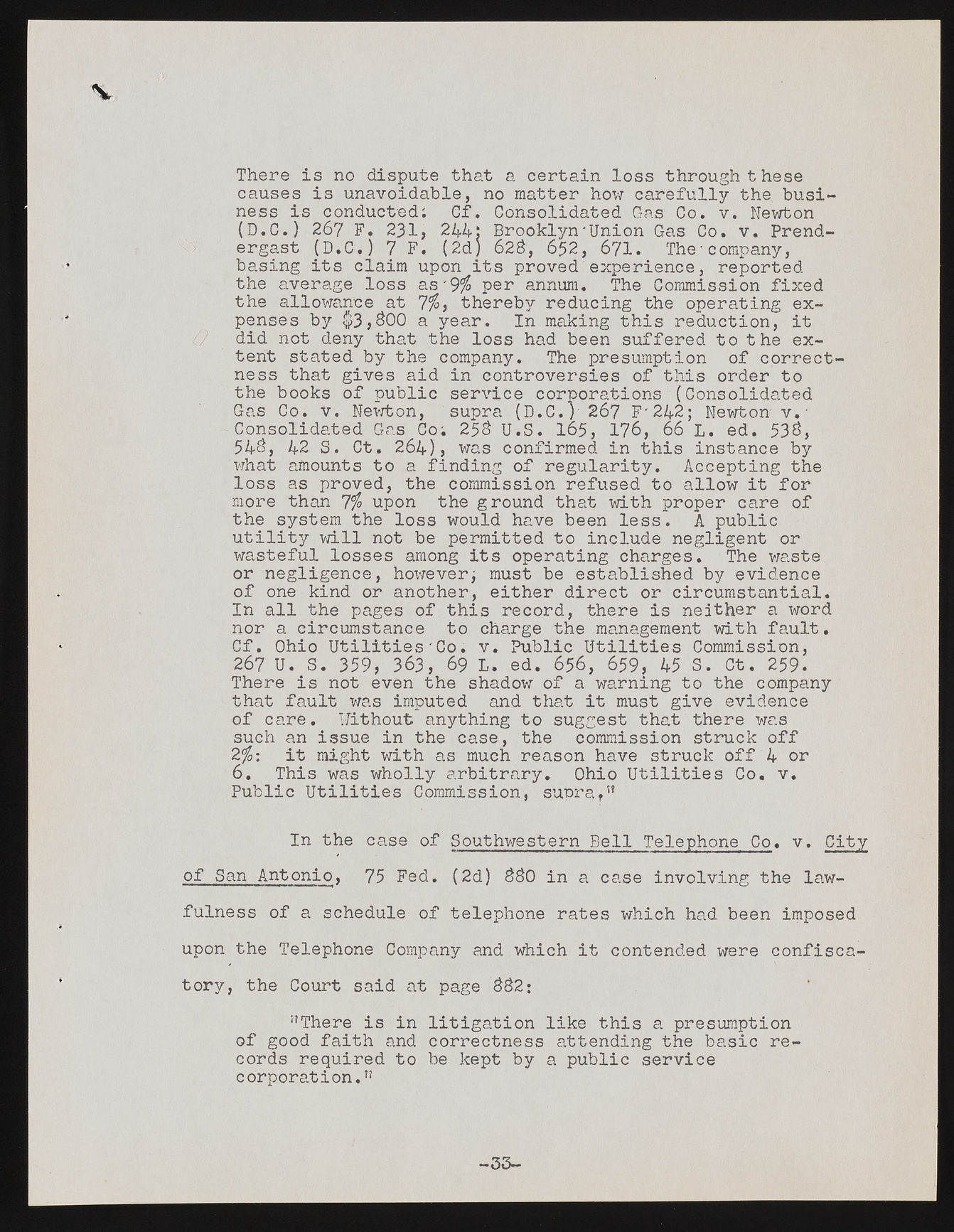Copyright & Fair-use Agreement
UNLV Special Collections provides copies of materials to facilitate private study, scholarship, or research. Material not in the public domain may be used according to fair use of copyrighted materials as defined by copyright law. Please cite us.
Please note that UNLV may not own the copyright to these materials and cannot provide permission to publish or distribute materials when UNLV is not the copyright holder. The user is solely responsible for determining the copyright status of materials and obtaining permission to use material from the copyright holder and for determining whether any permissions relating to any other rights are necessary for the intended use, and for obtaining all required permissions beyond that allowed by fair use.
Read more about our reproduction and use policy.
I agree.Information
Digital ID
Permalink
Details
Member of
More Info
Rights
Digital Provenance
Publisher
Transcription
m There is no dispute that a certain loss through these causes is unavoidable, no matter how carefully the business is conducted; Cf. Consolidated Gas Co. v. Newton (D.C.) 267 F* 231, 244; Brooklyn'Union Gas Co. v. Prend- ergast (D.C.) 7 F. (2d) 62$, 652, 671. The-company, basing its claim upon its proved experience, reported the average loss slS'9% per annum. The Commission fixed the allowance at 7%} thereby reducing the operating expenses by §3}$00 a year. In making this reduction, it did not deny that the loss had been suffered to the extent stated by the company. The presumption of correctness that gives aid in controversies of this order to the books of public service corporations (Consolidated Gas Co. v. Newton, supra (D.C.) 267 F'242; Newton v.? Consolidated Gas Co; 25$ U.S. 165, 176, 66 L. ed. 53$, 54$, 42 S. Ct. 264), was confirmed in this instance by what amounts to a finding of regularity. Accepting the loss as proved, the commission refused to allow it for more than 1% upon the ground that with proper care of the system the loss would have been less. A public utility will not be permitted to include negligent or wasteful losses among its operating charges. The waste or negligence, however; must be established by evidence of one kind or another, either direct or circumstantial. In all the pages of this record, there is neither a word nor a circumstance to charge the management with fault. Cf. Ohio Utilities'Co. v. Public Utilities Commission, 267 U. S. 359, 363, 69 L. ed. 656, 659, 45 S. Ct. 259. There is not even the shadow of a warning to the company that fault was imputed and that it must give evidence of care. Without anything to suggest that there was such an issue in the case, the commission struck off 2%: it might with as much reason have struck off 4 or 6. This was wholly arbitrary. Ohio Utilities Co. v. Public Utilities Commission, suprars? In the case of Southwestern Bell Telephone Co. v. City of San Antonio, 75 Fed. (2d) $$0 in a case involving the lawfulness of a schedule of telephone rates which had been imposed upon the Telephone Company and which it contended were confiscatory, the Court said at page $$2; nThere is in litigation like this a presumption of good faith and correctness attending the basic records required to be kept by a public service corporation.n - 3 3 -

